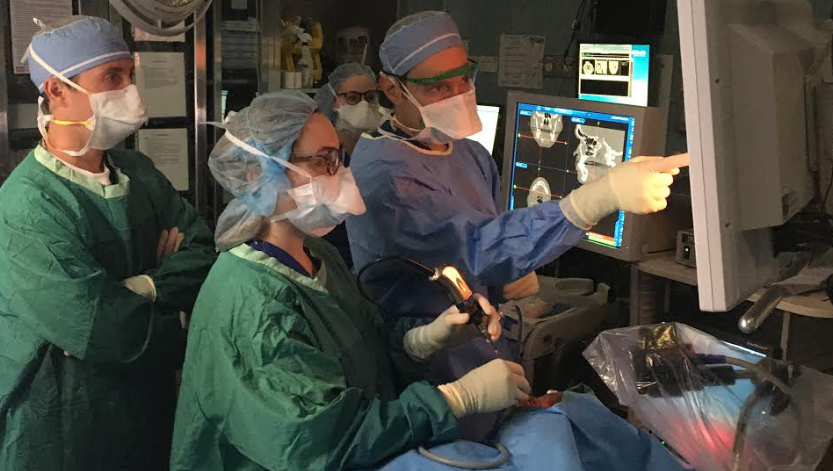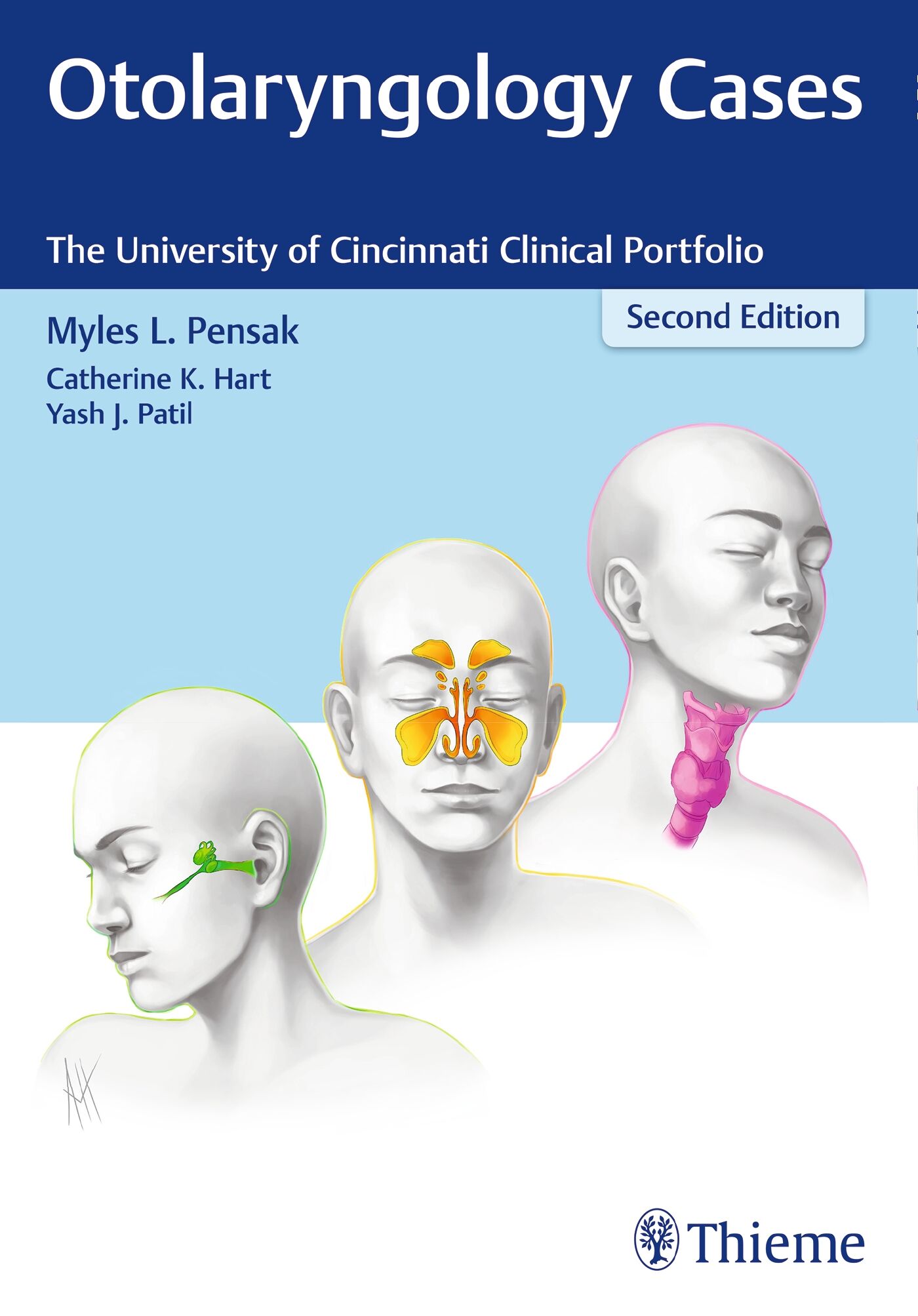Pediatric Otolaryngology: What Parents Should Know
Wiki Article
Checking out the Area of Otolaryngology: What to Expect When You Get In Touch With an ENT
Otolaryngology, frequently described as ENT, includes the diagnosis and treatment of ear, throat, and nose conditions. Sinus. For those experiencing relevant concerns, seeking advice from an ENT expert can offer clarity and relief. Understanding what to expect during such appointments is necessary for effective communication and care. This review will outline essential aspects of the ENT experience, including common factors for brows through and the processes involved in diagnosis and therapyRecognizing Otolaryngology: A Review
Otolaryngology, commonly referred to as ENT (Nose, ear, and throat) medicine, is a customized branch of medicine that concentrates on the diagnosis and treatment of conditions impacting these critical areas of the body. This area includes a variety of conditions, including those pertaining to hearing, equilibrium, breathing function, and speech. Otolaryngologists are trained to manage both medical and medical therapies, making use of innovative methods and innovations. Their knowledge extends beyond conventional disorders, dealing with problems such as allergies, sinus infections, and hearing loss. Additionally, they play an essential duty in the management of head and neck cancers cells, supplying complete care tailored to individual client requirements. Overall, otolaryngology continues to be crucial for preserving wellness and lifestyle in affected people.Typical Factors to See an ENT Expert
Numerous individuals look for the experience of an ENT specialist for a variety of reasons, showing the varied nature of conditions that impact the ear, throat, and nose. Typical issues include chronic sinusitis, which frequently leads to relentless nasal congestion and facial discomfort. Allergic reactions and their associated symptoms, such as itching and sneezing, likewise motivate check outs to these experts. Hearing loss, whether steady or unexpected, is an additional significant reason for consultation. Additionally, individuals might look for evaluation for throat conditions, including persistent hoarseness or ingesting problems. Sleep apnea, identified by disrupted breathing during sleep, is often dealt with by ENT professionals. Each of these conditions highlights the significance of specialized treatment in managing complicated ENT-related health and wellness problems.Planning for Your ENT Visit
When getting ready for an ENT appointment, it is important to gather relevant information and take into consideration any kind of specific concerns. Patients need to compile a detailed clinical background, consisting of previous ear, nose, or throat concerns, surgical procedures, and current medicines. Recording signs and symptoms-- such as period, regularity, and seriousness-- can supply useful insights for the ENT professional. Additionally, people ought to prepare a listing of concerns they want to ask, ensuring that all issues are resolved during the browse through. Bringing along any type of appropriate medical records or examination outcomes can better assist the ENT in comprehending the individual's problem. People should validate their appointment information, consisting of area, day, and time, to lessen any type of last-minute confusion. Correct prep work can enhance the performance of the assessment and cause better outcomes.
What to Anticipate Throughout the Consultation
As the appointment starts, the client can anticipate to involve in a thorough conversation with the ENT professional concerning their signs and symptoms and case history. The specialist will certainly ask about the duration, frequency, and intensity of signs such as hearing loss, nasal congestion, or sore throat. Furthermore, the client's previous medical problems, medications, and any pertinent family history will certainly be assessed, helping the professional in developing a total understanding of the patient's wellness. The ENT may likewise inquire about lifestyle aspects, such as direct exposure to toxic irritants or irritants. This open dialogue develops a structure for the appointment, making sure that the person's issues are addressed and establishing the phase for any needed evaluations or suggestions for therapy.Diagnostic Tests and Treatments in Otolaryngology
A series of diagnostic tests and procedures are essential in otolaryngology to accurately assess and detect conditions influencing the throat, nose, and ear. Typical examinations include audiometry, which gauges hearing feature, and tympanometry, examining center ear pressure. Nasal endoscopy enables visualization of the nasal flows and sinuses, while laryngoscopy takes a look at the throat and vocal cords. Imaging methods, such as CT scans and MRIs, provide detailed sights of head and neck structures. Allergy testing might additionally be carried out to determine triggers for sinus or respiratory system issues. These analysis tools allow ENT experts to establish a detailed understanding of individuals' problems, making sure customized and effective administration strategies. Proper diagnosis is necessary for effective treatment results in otolaryngology.Treatment Choices Used by ENT Specialists
ENT professionals use a range of therapy alternatives tailored to resolve specific conditions influencing the throat, ear, and nose. These therapies range from conventional approaches, such as medicine and way of living alterations, to even more invasive treatments. For example, allergic reactions might be managed with antihistamines or immunotherapy, while chronic sinus problems could call for nasal corticosteroids or sinus surgery. For hearing loss, ENT experts commonly advise listening devices or medical treatments like cochlear implants. In situations of throat problems, choices can include speech treatment or surgeries to remove obstructions. In addition, they may offer support for handling sleep apnea, consisting of the use of CPAP gadgets or medical treatments. On the whole, the objective is to improve individuals' lifestyle through customized care and effective treatment strategies.When to Seek Follow-Up Treatment With an ENT
Acknowledging when to seek follow-up treatment with an ENT expert is important for managing continuous signs or complications associated with nose, ear, and throat ENT problems (Voice). People must think about setting up a follow-up visit if signs persist in spite of initial treatment, such as chronic ear discomfort, nasal blockage, or throat discomfort. Adjustments in hearing, balance concerns, or uncommon nasal discharge may additionally call for more assessment. Furthermore, if a patient experiences side impacts from suggested medications or has actually undertaken a procedure, follow-up care is very important to monitor recovery and attend to any worries. Prompt appointments can assure effective management of problems, prevent potential difficulties, and supply satisfaction pertaining to one's health. Looking for follow-up care advertises positive health and wellness management in otolaryngologyOften Asked Inquiries
What Qualifications Should I Search for in an ENT Professional?
When seeking an ENT professional, one should try to find board certification, appropriate experience, and solid individual testimonials. In addition, effective interaction abilities and a caring approach can considerably improve the overall treatment experience.Exactly how Do I Pick the Right ENT for My Needs?
Choosing the best ENT specialist includes evaluating their qualifications, experience, and client reviews. It is important to ponder their communication design and technique to therapy, ensuring they align with the individual's specific health and wellness requirements and preferences.Are There Any Threats Connected With ENT Procedures?
The threats connected with ENT procedures might include infection, bleeding, anesthetic issues, and potential damages to surrounding frameworks. Patients should go over these dangers with their medical professional to recognize private worries and guarantee notified choices.Exactly How Can I Manage Stress And Anxiety Before My ENT Consultation?
To take care of stress and anxiety prior to a consultation, people can practice deep breathing workouts, picture positive results, prepare concerns beforehand, and look for support from pals or family, cultivating a feeling of peace of mind and peace.
What Should I Do if I Experience Adverse Effects From Therapy?
If negative effects from treatment happen, the person must promptly report them to their medical care copyright. Otolaryngology. Adjustments to treatment or added interventions might be necessary to ensure safety and security and performance in handling their condition. As the appointment begins, the client can anticipate to involve in a thorough conversation with the ENT specialist regarding their signs and symptoms and clinical background. These diagnostic devices enable ENT specialists to establish a comprehensive understanding of clients' conditions, making certain customized and effective management strategies. ENT experts offer a variety of therapy choices customized to attend to specific problems influencing the throat, nose, and ear. When seeking an ENT professional, one need to look for board accreditation, pertinent experience, and strong client reviews. Choosing the best ENT professional entails assessing their qualifications, experience, and patient testimonialsReport this wiki page